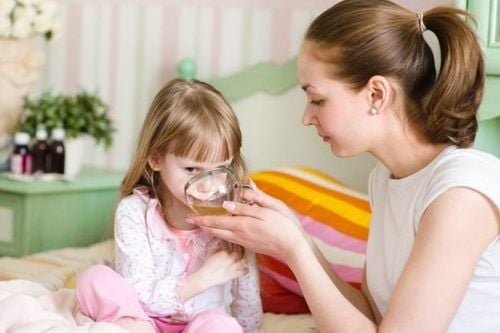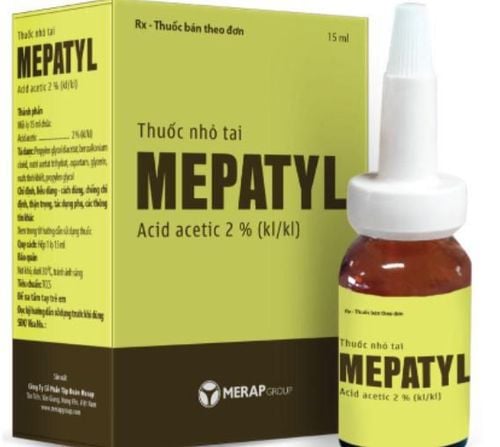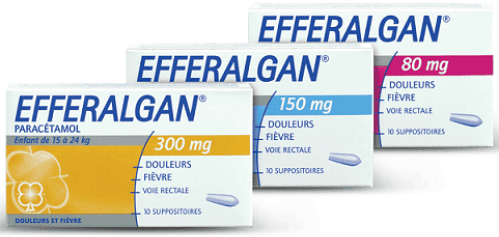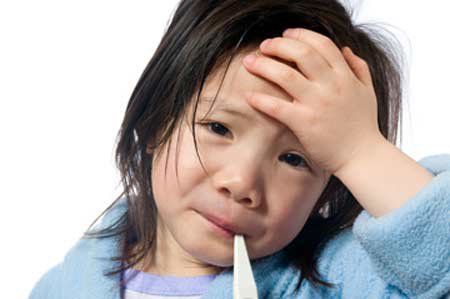This is an automatically translated article.
The article was professionally consulted with Master, Doctor Dang Huy Toan - Pediatrician - Neonatologist - Department of Pediatrics - Neonatology - Vinmec Nha Trang International General Hospital.Fever is a common condition in children. For babies 3 months and younger who have a fever, they should see a doctor right away. Children 3 months of age and older with a low-grade fever can be treated at home with appropriate measures if no other symptoms are present. Newborns with a high or persistent fever should be evaluated by a doctor.
1. Why do babies have a fever?
If your child wakes up in the middle of the night crying, and his skin is red, you need to take his or her temperature to determine if he has a fever. Although fevers themselves are not dangerous, sometimes they are a manifestation of other medical conditions. Young infants often have causes of fever that require treatment.In other words, fever is often a symptom of a larger medical condition. Newborns have a fever for many reasons, including:
Viral infections Bacterial infections After certain vaccinations Another medical condition Common causes of fever in children include medical conditions respiratory tract, such as colds and ear infections.
2. Identify infant fever
Normal temperatures hover around 98.6°F (37°C). Average body temperature can vary slightly from morning to night. Body temperature is usually lower when you wake up, and higher in the afternoon and evening.Infants under 3 months of age with fever require immediate medical attention to diagnose the underlying cause and treat if necessary. An infant is considered to have a fever if the baby's temperature is:
100.4°F (38°C) or higher rectally (rectal) 99°F (37.2°C) or higher than when taking the temperature elsewhere. For infants over 3 months, a low-grade fever does not always require medical attention.

Cha mẹ nên dùng nhiệt kế để xác định cơn sốt trẻ sơ sinh
3. How to effectively reduce fever for children
Babies older than 3 months with a slightly elevated temperature usually don't need to see a doctor. You can treat a fever at home with the following methods:3.1. Infant fever-reducing medicine Acetaminophen If your baby is over 3 months old, a safe amount of children's acetaminophen (Tylenol) can be given. Dosage is usually based on the child's weight. So your doctor may recommend weighing your baby if she hasn't been weighed recently or if she's been growing rapidly.
If your baby is not upset or fussy because of the fever, you may not need to give your baby fever-reducing medicine. In case the child has a high fever or is accompanied by unpleasant symptoms, fever-reducing medicine can be used to help the child feel more comfortable.
3.2. Adjust your baby's clothes
Dress your baby in light clothes and use only a light blanket to keep him comfortable and cool. Dressing babies too hot can interfere with the body's natural process of cooling down.
3.3. Lower the temperature Keep your baby's house and room cool. This can help prevent your baby from overheating.
3.4. Give your baby a warm bath Try using warm water to gently rub your baby's body. When touching with your inner arm, the water temperature should be warm, not hot. Take care during the bath to make sure your baby is safe.
Avoid using cold water, as this can make your baby shiver and increase body temperature. Dry your child immediately after bathing and dress him in light, comfortable clothing. Do not use alcohol-based body wash or wet wipes to wipe down your child's fever as this can be harmful.
3.5. Replenish fluids Dehydration is a possible complication of fever. Give your baby water, breast milk or formula regularly. Make sure your baby still has tears when crying, a wet mouth, and a wet diaper frequently.

Cha mẹ nên bổ sung chất lỏng cho trẻ khi trẻ bị sốt
4. Things to avoid when your child has a fever
There are some things you should not do if an infant has a fever , such as :Delay medical care for an infant with a fever , a young child with a fever that persists or appears to be very ill Take fever-reducing medicine for infants without first checking the child's temperature and consulting a doctor Give the child adult medicine Wear clothing that is too tight for the infant Use ice or alcohol to cool down the child.
5. When to seek medical help?
Be sure to monitor the infant's temperature throughout the illness, observing other symptoms and behaviors to determine if a doctor should be contacted.You should contact your infant's doctor or seek medical treatment if:
An infant under 3 months of age has an elevated temperature An infant 3 - 6 months old has an rectal temperature of 102° F (38.9°C) or higher Baby 6-24 months old with a fever above 102°F (38.9°C) for more than 1 - 2 days with no other symptoms Baby has a fever that lasts more than 24 hours or occurrences Your baby is irritable (a lot fussy) or comatose (weaker or more sleepy than usual) Your baby's temperature doesn't drop for 1 hour or longer after your baby's dose of fever-reducing medicine has been given appropriate birth Child develops other symptoms, such as rash , poor feeding or vomiting Child is dehydrated (not producing tears, saliva or diapers drier than usual) In summary, how to treat fever in infants Birth will vary depending on the age of the child and the symptoms that accompany the fever. Newborns with a fever should be seen by a doctor immediately, while you can lower a fever for babies older than 3 months at home if the temperature is only mildly elevated. Always consult your doctor before giving any medicine to your child and seek medical attention if your child has a high fever or if the fever persists for more than 1-2 days.
Pediatrics - Vinmec International General Hospital always receives and examines diseases that infants and young children are susceptible to: viral fever, bacterial fever, otitis media, pneumonia in children,. .. With a team of highly specialized doctors, from many large hospitals and a system of modern medical facilities and equipment, will bring satisfaction to customers during examination and treatment.
Therefore, when children have any health problems, parents should take their children to the hospital to be examined by a doctor and have timely intervention.
Please dial HOTLINE for more information or register for an appointment HERE. Download MyVinmec app to make appointments faster and to manage your bookings easily.
References: healthline.com - mayoclinic.org













